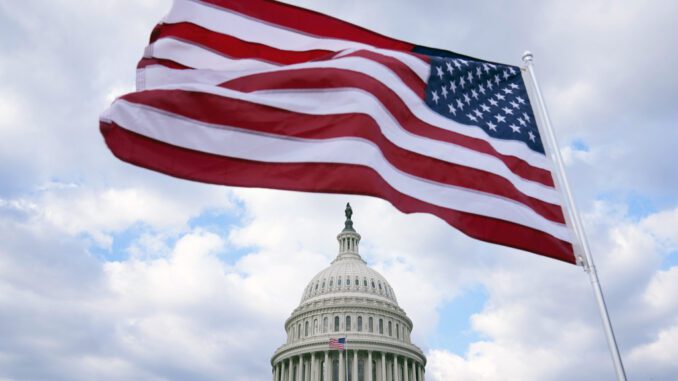
Gallup tests the honesty and ethical standards of various professions. In 2017, they added lobbyists, finishing last with 58% rating their honesty and ethics as “low” or “very low,” below car salespersons.
Gallup has since dropped lobbyists off their survey.
Many claim that lobbyists “run Congress” and some state capitals. Voters think they have special access and many favors to bestow on elected officials. When lobbying scandals happen, new “reform laws” are named after them. Voters repel such phrases as the “revolving door” where politicians, congressional staff, and bureaucrats slide back and forth between private sector agencies and the interests they regulate.
I get it.
Sadly, it doesn’t represent the work of about 12,000 registered lobbyists in Washington, D.C., or thousands more in state capitals who represent people who represent themselves, like farmers, manufacturers, law enforcement and retirees — people who don’t live near capital cities and don’t know how to navigate the halls of legislatures.
I lobbied over two decades after a dozen years working in congressional campaigns and Capitol Hill as chief of staff to a congressman, a Senate leadership aide, and a secretary of the U.S. Senate. You deserve truth and transparency.
First, lobbying is constitutionally protected. The last of five “rights” in the First Amendment is the “redress of grievances.” That’s the right to petition government. You can do it in person or you can hire a professional.
Second, at least in Washington, it is highly regulated and transparent. After the Honest Leadership and Open Government Act (HLOGA) was enacted in 2007, gifts to elected officials and staff were banned — no privately paid travel involving lobbyists.
Suppose you’re paid to lobby, including spending at least 20% of your time on “lobbying activities,” broadly defined, and make one lobby contact. You must register and file quarterly financial reports. You’re subject to audits by the Government Accountability Office (GAO). And you can be referred to the U.S. Attorney for prosecution if you fail to comply.
Third, the lobbying world is no different than sports and politics — it’s highly competitive. I was part of the “Coalition for Transportation Productivity” to allow states to increase truck weight limits on U.S. interstates with safer trucks that included an extra axle. Lower shipping costs, better braking power, less wear and tear on roads and bridges, and fewer trucks. What’s not to like?
The Coalition Against Bigger Trucks recoiled. We had the facts, but they had the politics and the optics of collapsed bridges and truck accidents, even though we proved our proposal would reduce them.
Political optics almost always trumps truth.
Fourth, lobbyists utilize many tools of their trade, the most frequent being coalitions. How many of you have signed up to support “HandsOffMyRewards.com,” a coalition of credit card companies, major retailers and banks fighting legislation by Sens. Richard Durbin (D-IL) and Roger Marshall (R-KS) to curb transaction fees that retailers pay every time you use your credit card. They not only use their own Washington office and army of “contract lobbyists” to defend their business, they’re signing you up to help them.
And that’s a good thing, whether you agree with them or not. Smart elected officials keep tallies of constituent communications on key issues. You want to be on the winning side of that ledger.
Do we need more lobby reform laws? The answer may be for lobbyists and their clients to shift to “employer-to-employee” (E2E) engagement. Employees trust employers more than the media, unions and political parties for information on issues that affect their jobs. That’s how I operated my former employer. We didn’t have a Washington office or a lobbyist in Raleigh, but we could generate hundreds of employee communications to federal and state legislators on short notice. It works.
The key to effective lobbying is citizen engagement. It’s not expensive, and any company of any size can do it. It doesn’t require a lobbyist, just a few dollars for the kind of online tools available from Business-Industry Political Action Committee (BIPAC) in Washington, D.C., and someone on your team sharing information with your employees, with help from your trade associations and chambers.
Maybe then, our kids will start thinking about becoming lobbyists someday. At least their “honesty and ethics” rating would improve. And it might make a very positive impact on public policy in Raleigh and Washington, D.C.
Kelly Johnston was the 28th secretary of the U.S. Senate and vice president of government affairs for a Fortune 250 manufacturing company with operations in North Carolina until 2019. Read his full five-part series on lobbying at kellyjohnston.substack.com.
